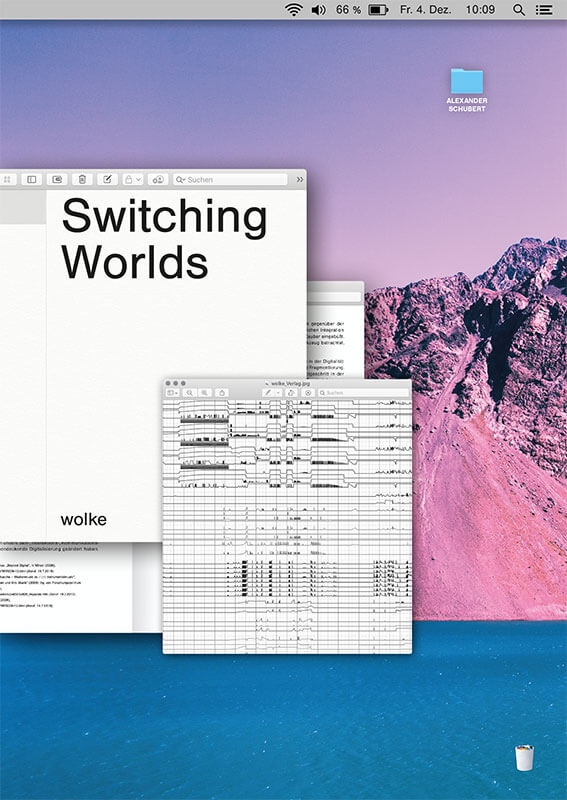
Alexander Schubert
Switching Worlds
In English (PDF)
In the context of this work, I propose the examination of my compositional strategy in the context of a postdigital1 perspective and present my artistic method as a tool for visualizing and sensually experiencing digital effects in the analogue world. This approach is based on the assumption that, today, the use of digital tools and representational forms is no longer the exception but the rule, and that this circumstance nowadays significantly influences our interactions, views and body images. In particular, these approaches address the question of whether, in this newly established constitution, our view of the analogue, non-digital environment has also changed. “Post-digitality” is to be understood here as a “shift in perception”. This readjustment of a digitally influenced or digitally reflective perspective will be presented as a compositional strategy. Under the title „Switching Worlds“, this practice will be established as a technique that actively thematizes the interweaving of the analogue with the digital and their interplay, thus making it palpable, and shall present and contrast different perspectives. The comparison of virtual and physical worlds and their artistic decoupling will be presented as a compositional approach and method of artistic research that attempts to convey these implications not only theoretically, but also to make them comprehensible to the senses.
Schubert is a founding member of ensembles such as “Decoder“. His works have been performed more than 900 times in the last few years by numerous ensembles in over 40 countries.
Alexander Schubert studied neuro-informatics and multimedia composition. He is a freelance composer and professor at the HfMT Hamburg. His work focuses on post-digital performance concepts, which take place at the junction of the digital and analog world. He explores the friction between immersive physical settings and their artificially virtual counterparts. His multimedia compositions use sound, video and light. They address the subjective and social confrontation of humans with a technical reality and future.
Digital copy as PDF (English)

